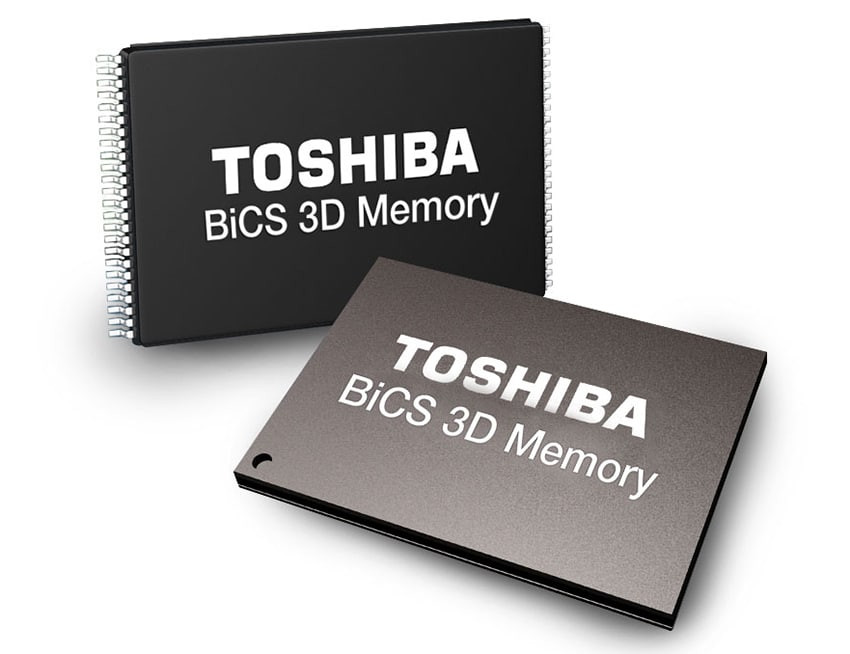Toshiba has announced the development of a 48-layer three dimensional stacked cell structure flash memory named BiCS, a 2-bit-per-cell 128-gigabit (16 gigabytes) device. Primarily suited for solid state drives, the BiCS is based on a 48-layer stacking process, which enhances the reliability of write/erase endurance all the while boosting write speed. Sample shipments of products using the new process technology will start today.

Toshiba has continued to put an emphasis on developing optimized mass production in order to meet further market growth in 2016 and in the future. The company invented the BiCS 3D technology back in the early 2000s, and Toshiba is proactively endorsing the migration to 3D Flash memory by releasing a product portfolio that focusing on large capacity applications, including SSDs. Toshiba’s 3D technology offers four key benefits: 3D technology uses less power, promotes better endurance, increases power efficiency, and offers higher density. As a result, this makes the technology ideal for a variety of high-performance application use cases.
Toshiba is also preparing for mass production in their new Fab2 at Yokkaichi Operations, its production site for NAND flash memories. Around this time last year, the company announced that it would be replacing their old fabrication facility in Yokkaichi, Japan, for transition to 3D NAND Technology. The new Fab2 is currently under construction and will be completed sometime during the first half of 2016.
Micron and Intel also announced a jointly developed new 3D NAND technology today.
Discuss this story




 Amazon
Amazon